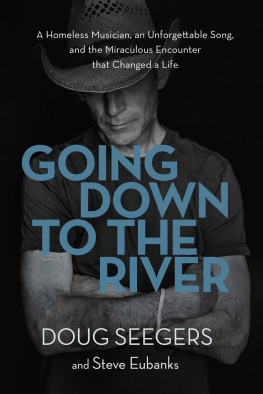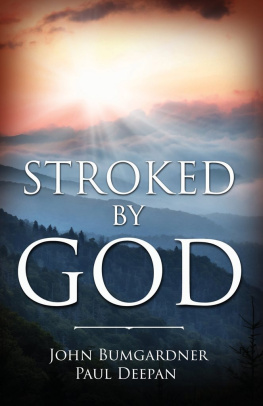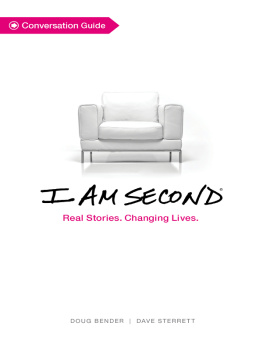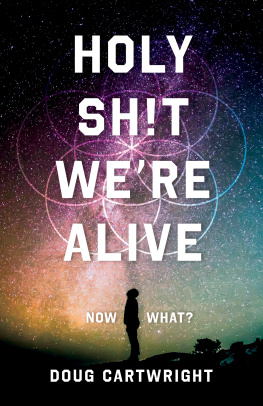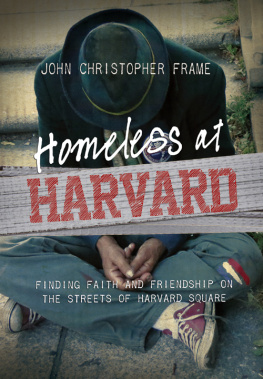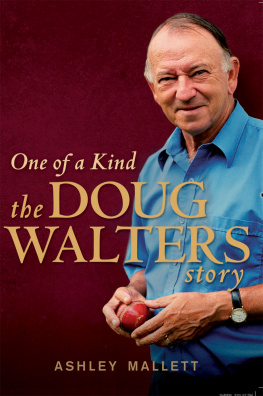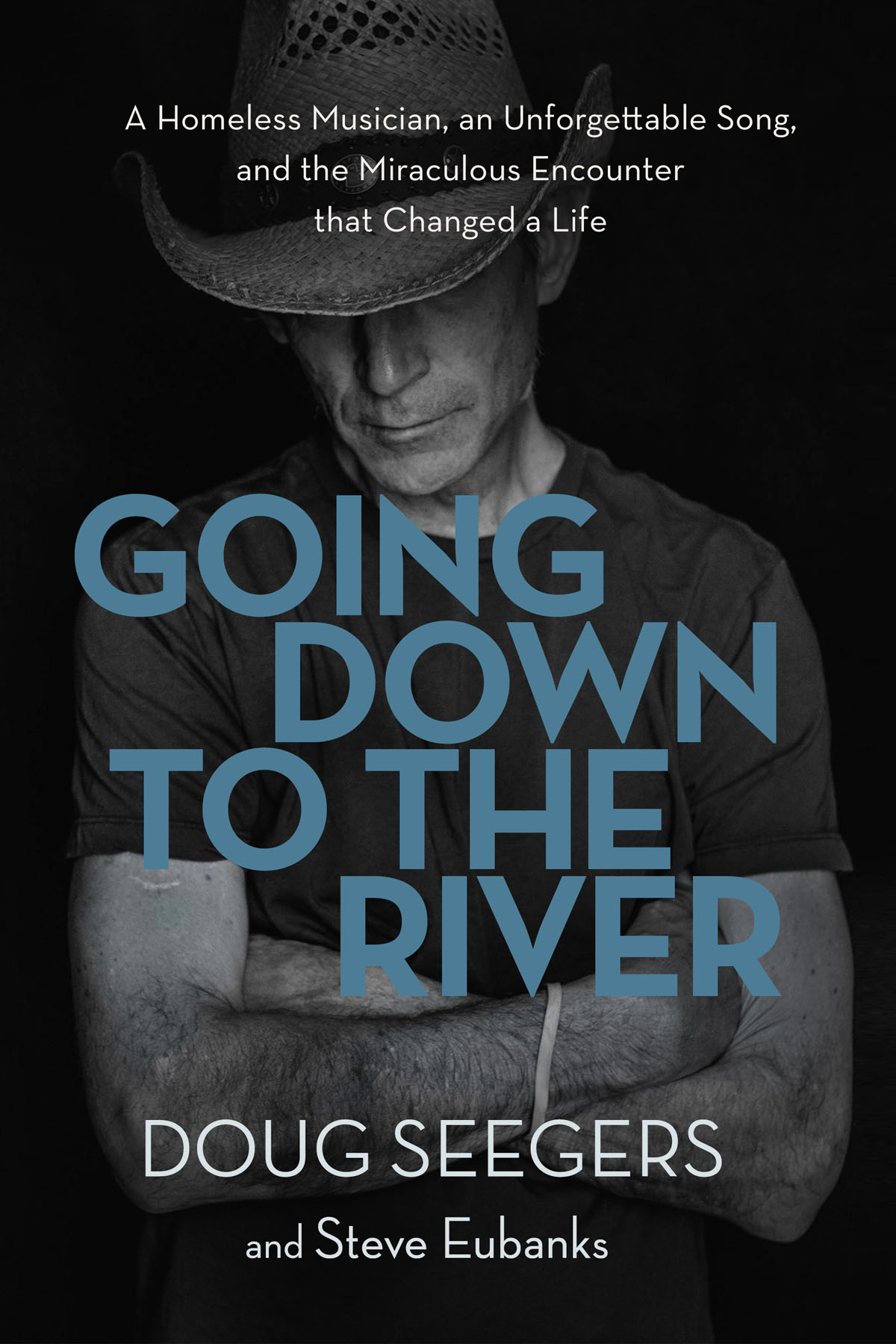PRAISE FOR GOING DOWN TO THE RIVER
Doug Seegers has been a friend and inspiration since we first met, days before we began recording his debut album, Going Down to the River. This is his story. A good old-fashioned rising-from-the-ashes tale toldand livedwith grace and gratitude. Dougs story will inspire you too.
Will Kimbrough
When I met Doug Seegers in 1974, I knew we were connected. I didnt know what lay ahead for him, but I was touched by his huge talent and the cry of his soul. His story is a beautiful reminder of how God can change a heart and life when you least expect it, and then go on to touch others through you.
Buddy Miller
Doug Seegerss first-person account of homelessness and addiction stands as one of the greatest comeback stories in modern music. That the worst of it happened well before his much-deserved breakthrough as a sixty-three-year-old singer-songwriter says as much about spiritual resilience as it does undeniable talent.
Rodney Crowell
2018 by Doug Seegers
All rights reserved. No portion of this book may be reproduced, stored in a retrieval system, or transmitted in any form or by any meanselectronic, mechanical, photocopy, recording, scanning, or otherexcept for brief quotations in critical reviews or articles, without the prior written permission of the publisher.
Published in Nashville, Tennessee, by Nelson Books, an imprint of Thomas Nelson. Nelson Books and Thomas Nelson are registered trademarks of HarperCollins Christian Publishing, Inc.
Thomas Nelson titles may be purchased in bulk for educational, business, fund-raising, or sales promotional use. For information, please e-mail SpecialMarkets@ThomasNelson.com.
Unless otherwise noted, Scripture quotations are taken from the Holy Bible, New International Version, NIV. Copyright 1973, 1978, 1984, 2011 by Biblica, Inc. Used by permission of Zondervan. All rights reserved worldwide. www.zondervan.com. The NIV and New International Version are trademarks registered in the United States Patent and Trademark Office by Biblica, Inc. Scripture quotations marked ESV are taken from are taken from the Holy Bible, New International Version, NIV. Copyright 1973, 1978, 1984, 2011 by Biblica, Inc. Used by permission of Zondervan. All rights reserved worldwide. www.zondervan.com. The NIVand New International Version are trademarks registered in the United States Patent and Trademark Office by Biblica, Inc. Scripture quotations marked KJV are taken from the King James Version of the Bible, public domain.
Any Internet addresses, phone numbers, or company or product information printed in this book are offered as a resource and are not intended in any way to be or to imply an endorsement by Thomas Nelson, nor does Thomas Nelson vouch for the existence, content, or services of these sites, phone numbers, companies, or products beyond the life of this book.
Lyrics to the following are reprinted by permission of the author: Going Down to the River, Burning a Hole in My Pocket, Angies Song, Memory Lane, and Give It Away.
Epub Edition August 2018 9780718095680
ISBN 978-0-7180-9658-0 (eBook)
Library of Congress Cataloging-in-Publication Data
Names: Seegers, Doug, author.
Title: Going down to the river: a homeless musician, an unforgettable song, and the miraculous encounter that changed a life / Doug Seegers.
Description: Nashville, Tennessee: Nelson Books, [2018] | Includes bibliographical references.
Identifiers: LCCN 2017023966 | ISBN 9780718095673
Subjects: LCSH: Seegers, Doug. | Country musiciansUnited StatesBiography. | Homeless personsUnited StatesBiography.
Classification: LCC ML420.S446 A3 2018 | DDC 782.421642092 [B]dc23 LC record available at https://lccn.loc.gov/2017023966
Printed in the United States of America
18 19 20 21 22 LSC 10 9 8 7 6 5 4 3 2 1
CONTENTS
Guide
N ear as I can tell, when you look at the world and everybody in it, being homeless just in itself aint a failing, moral or otherwise. I ought to know. Whether lying under a bridge in Tennessee, doing my best to stay warm and get a little shut-eye before the dawn parade of eighteen-wheelers rattles the highway overhead like tiny earthquakes, or on days like today when Im ordering room service in one of the best hotels in Stockholm, I try to look at every day as a test. A few years ago, my test was to trust God as I was looking for a hot meal and some cardboard or a blanket to block the wind.
I cant say I was unhappy being homeless. In fact, its the opposite. I didnt have any bills; didnt have anybody telling me what to do, where to go, what to wear, or how to speak; didnt have any responsibilities (or so I figured at the time); didnt have the weight of the world loading me down. I was out in nature, living each day free and easy. But I did have accountability. I was answerable to the Maker of all those trees I was sleeping under; responsible to the Creator of that water in the creek where I bathed and filled a cup to drink; accountable to the Giver of life, the Father of the ground I slept on more nights than not. I had a responsibility to live a life pleasing to him. Now my test is to keep him out front as Im playing sold-out shows, selling records, signing autographs, and posing for pictures.
Because of where Ive been, I know that it dont matter if you live in a palace or a box: Your standing with the Almighty doesnt change just because you get dinner out of a dumpster instead of having it delivered with a white napkin and a bunch of forks. Homelessness aint noble, but its not the worst of a man, either. What matters aint where you live, its how you live.
How I lived was rougher than the ground I slept on. The sinning Ive done would make a hard man blush, just as the praying Ive donethe begging to the Lord for strength and forgivenesswould cause that same man to cry like a little child. But on both sides of my life, being homeless never made me ashamed. I guess its because poverty had been with me for as long as Id had memory. Whether it was me and my brother rummaging through dumpsters looking for bicycle parts, or me throwing a thumb in the air and hitchhiking across the country, wherever I needed to go, Id always lived in the corners. Its where I was comfortablewhere I knew how to get along. Sometimes I had a place, an apartment or a house, especially when my kids were young. Other times I made do with a cot at a shelter, a tent in the woods, a jail cell and a jumpsuit, or a bedroll under the moon. Finding a place to bunk and a bite to eat every night was part of lifes adventure, the tests I figured were all part of Gods plan.
That kind of livings rough for people to look at. Folks sure had a hard time looking at me. Most of the time I didnt have much trouble getting by. I could always find a meal, either at a shelter or in a dumpster. Foods around if you know where to look. But when my fellow man avoided eye contactwhen people stared out the windshield without so much as a blink, and me standing right next to em flying a cardboard flag that said, Hungry, Any Little Bit Helpswell, thatll put a hard, heavy weight on you. Make you think about life and whats really valued in a person. Ignoring aint easy; its just familiar. Theres a rawness about a fella trotting to the other side of the road to avoid you, running away, and hoping it dont look too obvious. Itd be a shame to hear a man say, Good morning or God bless if there was any chance he might hit you up for some spare change or a dollar or two to get through the day.
Funny how the look of a man means so little, and yet so much. My clothes are better now, I guess, although the pantries and shelters always had fine things. Wearing a flannel shirt and jeans in Nashville is a sign that youre either homeless or a millionaire country music star with a mansion and a tour bus. You could be a rancher, a lawyer, a bootleggerno telling. Ive never been sure how people could spot a homeless person, at least from far enough away to avoid you. Yeah, Id lost some teeth by the end of it, and I ate a lot of my meals from places most folks wouldnt even touch. I drank water from my hands out of a creek, and sometimes my dinner plate was a tin pot on the ground. Showering wasnt always a daily thing, but my hair looked all right and I always had shoes. I wore my T-shirts right side out most of the time, and I didnt shuffle or yell at voices nobody else could hear like some of the poor souls down there. I guess its just a feeling that drives folks away. As Ive spent more time in the Bible, I think a lot about John the Baptist, long-haired, wearing camel hide, eating bugs and honey, hollering at crowds to repent. You reckon hed go over in Nashville or New York today?

